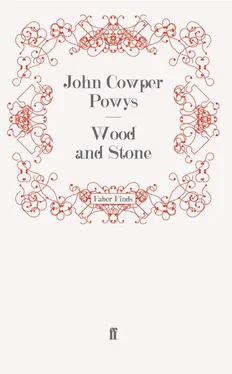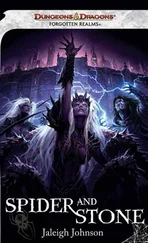Luke was not by any means struck dumb or paralyzed by this event. His intelligence had never been more acute, or his senses more responsive, than they remained through those long hours of watching.
It is true he could neither eat nor sleep. The influence of the motionless figure beside him seemed to lie in a vivid and abnormal stimulation of all his intellectual faculties.
Not a sound arose from the sleeping house, from the darkened fields, from the distant village, but he noted it and made a mental record of its cause. He kept two candles alight at his brother’s head, three times refilling the candlesticks, as though the guttering and hissing of the dwindling flames would tease and disturb the dead.
He had been careful to push the two windows of the room wide open; but the night was so still that not a breath of wind entered to make the candles flicker, or to lift the edge of the white sheet stretched beneath his brother’s bandaged chin. This horrible bandage, — one of the little incidents that Luke marked as unexpectedly ghastly, — seemed to slip its knot at a certain moment, causing the dead man’s mouth to fall open, in a manner that made the watcher shudder, so suggestive did it seem of one about to utter a cry for help.
Luke noted, as another factor in the phenomena of death, the peculiar nature of the coldness of his brother’s skin, as he bent down once and again to touch his forehead. It was different from the coldness of water or ice or marble. It was a clammy coldness; the coldness of a substance that was neither — in the words of the children’s game—“animal, vegetable, nor mineral.”
Luke remembered the story of that play of Webster’s, in which the unhappy heroine, in the blank darkness of her dungeon, is presented with a dead hand to caress. The abominably wicked wish crossed his mind once, as he unclosed those stark fingers, that he could cause the gentle Lacrima, whom he regarded, — not altogether fairly, — as responsible for his brother’s death, to feel the touch of such a hand.
There came over him, at other times, as he inhaled the cool, hushed air from the slumbering fields, and surveyed the great regal planet, — Mr. Romer’s star, he thought grimly, — as it hung so formidably close to the silvery pallid moon, a queer dreamy feeling that the whole thing were a scene in a play or a story, absolutely unreal; and that he would only have to rouse himself and shake off the unnatural spell, to have his brother with him again, alive and in full consciousness.
The odd thing about it was that he found himself refusing to believe that this was his brother at all, — this mask beneath the white sheet, — and even fancying that at any moment the familiar voice might call to him from the garden, and he have to descend to unlock the door.
That thought of his brother’s voice sent a pang through him of sick misgiving. Surely it couldn’t be possible, that never, not through the whole of eternity, would he hear that voice again?
He moved to the window and listened. Owls were hooting somewhere up at Wild Pine, and from the pastures towards Hullaway came the harsh cry of a night-jar.
He gazed up at the glittering heavens, sprinkled with those proud constellations whose identity it was one of his pastimes to recognize. How little they cared! How appallingly little they cared! What a farce, what an obscene, unpardonable farce, the whole business was!
He caught the sound of an angry bark in some distant yard.
Luke cursed the irrelevant intrusive noise. “Ah! thou vile Larva!” he muttered. “What! Shall a dog, a cat, a rat, have life; and thou no breath at all?”
He leant far out of the window, breathing the perfumes of the night. He noticed, as an interesting fact, that it was neither the phloxes nor the late roses whose scent filled the air, but that new exotic tobacco-plant, — a thing whose sticky, quickly-fading, trumpet-shaped petals were one of his brother’s especial aversions.
The immense spaces of the night, as they carried his gaze onward from one vast translunar sign to another, filled him with a strange feeling of the utter unimportance of any earthly event. The Mythology of Power and the Mythology of Sacrifice might wrestle in desperate contention for the mastery; but what mattered, in view of this great dome which overshadowed them, the victory or the defeat of either? Mythologies were they both; both woven out of the stuff of dreams, and both vanishing like dreams, in the presence of this stark image upon the bed!
He returned to his brother’s side, and rocked himself up and down on his creaking bedroom chair. “Dead and gone!” he muttered, “dead and gone!”
It was easy to deal in vague mystic speculation. But what relief could he derive, he who wanted his brother back as he was, with his actual tones, and ways and looks, from any problematic chance that some thin “spiritual principle,” or ideal wraith, of the man were now wandering through remote, unearthly regions? The darling of his soul — the heart of his heart — had become forever this appalling waxen image, this thing that weighed upon him with its presence!
Luke bent over the dead man. What a personality, what a dominant and oppressive personality, a corpse has! It is not the personality of the living man, but another — a quite different one — masquerading in his place.
Luke felt almost sure that this husk, this shell, this mockery of the real James, was possessed of some detestable consciousness of its own, a consciousness as remote from that of the man he loved as that pallid forehead with the deep purple gash across it, was remote from the dear head whose form he knew so well. How crafty, how malignant, a corpse was!
He returned to his uncomfortable chair and pondered upon what this loss meant to him. It was like the burying alive of half his being. How could he have thoughts, sensations, feelings, fancies; how could he have loves and hates, without James to tell them to? A cold sick terror of life passed through him, of life without this companion of his soul. He felt like a child lost in some great forest.
“Daddy James! Daddy James!” he cried, “I want you;—I want you!”
He found himself repeating this infantile conjuration over and over again. He battered with clenched hand upon the adamantine wall of silence. But there was neither sign nor voice nor token nor “any that regarded.” There was only the beating of his own heart and the ticking of the watch upon the table. And all the while, with its malignant cunning, the corpse regarded him, mute, derisive, contemptuous.
He thought, lightly and casually, as one who at the grave of all he loves plucks a handful of flowers, of the girls he had just parted from, and of Gladys and all his other infatuations. How impossible it seemed to him that a woman — a girl — that any one of these charming, distracting creatures — should strike a man down by their loss, as he was now stricken down.
He tried to imagine what he would feel if it were Annie lying there, under the sheet, in place of James. He would be sorry; he would be bitterly sad; he would be angry with the callous heavens; but as long as James were near, as long as James were by his side, — his life would still be his life. He would suffer, and the piteous tragedy of the thing would smite and sicken him; but it would not be the same. It would not be like this!
What was there in the love of a man that made the loss of it — for him at least — so different a thing? Was it that with women, however much one loved them, there was something equivocal, evasive, intangible; something made up of illusion and sorcery, of magic and moonbeams; that since it could never be grasped as firmly as the other, could never be as missed as the other, when the grasp had to relax? Or was it that, for all their clear heads, — heads so much clearer than poor James’!—and for all their spiritual purity, — there was lacking in them a certain indescribable mellowness of sympathy, a certain imaginative generosity and tolerance, which meant the true secret of the life lived in common?
Читать дальше












